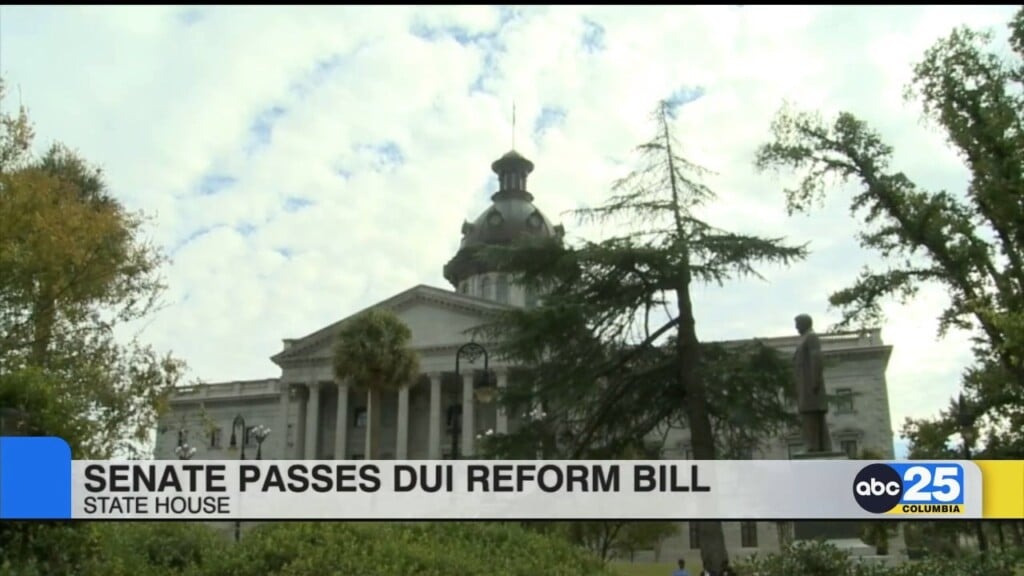Why revoking the ruling on international student visas matters
With the coronavirus pandemic still underway, some higher education institutions may be considering having only online classes as opposed to face-to-face.
Columbia, S.C. (WOLO) — Earlier this week, the Trump Administration backed down from plans to revoke the visas of international students attending universities and colleges in the U.S., if that institution is going completely virtual for the upcoming school year.
With the coronavirus pandemic still underway, some higher education institutions may be considering having only online classes as opposed to face-to-face.
“I was shocked to see the news via Facebook, and then the International Student Service (ISS) confirmed the policy with details. I was trying to find more information or an official announcement from the ICE website, but couldn’t find anything. I had many thoughts racing in my head, such as should I renew my lease, which many students already did. I couldn’t imagine what they should do if they really have to leave. It was unacceptable to let us deal with everything and bear with it,” said Winny Weng, a student from Taiwan working towards a master’s in social work from UofSC.
Although the University of South Carolina already announced in-person classes for the fall, international students still had concerns over possibly having their visas revoked.
“My first reaction to the Trump administration’s ruling on international student was fear. I was feeling scared and betrayed because I did not come this far to be potentially deported! I decided to come to United States as a graduate student to achieve my professional goals, and to contribute to the community like every international student does,” said Daniela Salazar Restrepo, a student from Colombia working towards a master’s in social work at UofSC. “My country is completely lockdown, and the only flights allow are humanitarian flights, which are expensive, and the waiting list has more than 400 people. In that case, I could not even be able to afford both, the humanitarian flight and graduate school.”
“In some instances, going back home was problematic because they didn’t necessarily have the access to resources, access to technology, access to suitable spaces to learn,” said Kirk Foster, Associate Dean for Diversity, Equity and Inclusion at UofSC’s School of Social Work.
But with the ruling reversed comes relief.
“It takes away the burden from those students of worrying about whether or not they will have to return to their home countries. And they can focus on getting the education that they came here to the United States to get, and that what we as an institution of higher education promised to deliver,” said Foster.
“When the Trump administration decided to rescind the immigration policy, I was completely surprise. One of my classmates sent me a message: ‘I am so happy you can stay. You are very well loved and respected part of our cohort and we need you here. No human is illegal’ and a screenshot of an article about the reversal. Then, I shared the news with other international students, who could not believe it. I am still excited and grateful with those who have been supporting international students,” said Salazar Restrepo. “Now, I can take the classes I initially wanted, and I can continue contributing to the community through my practicum, and my job as an interpersonal violence advocate at the University of South Carolina.”
“I am still confused about the Trump administration’s action because they must know the impact will be huge and there’s a consequence for doing so. I think no matter what kind of decision they make, we deserve an explanation, in a more polite way,” said Weng.
The presence of international students brings together different cultures and perspectives in a classroom.
“The student from Florence, South Carolina benefits from a conversation with a student from Bangladesh who benefits from a conversation with a student from northern Africa,” said Foster.
There has been one positive outcome from the discussion.
“A benefit of all of this policy and the conversation around it; it has galvanized us around our international students. It has reminded us why international students are important and the value that they bring,” said Foster.
“One of my concerns leading into the fall as coronavirus pandemic continues is not being able to see my family in a near future. Unfortunately, South America is emerging as the “new epicenter” of the coronavirus pandemic. While in the United States, the increment of COVID-19 cases, which means the population is even more socially and politically divided, and lacks compassion and awareness,” said Salazar Restrepo. “I am concern that a vast majority of the American population, who do not have health insurance are facing extreme poverty. This reality urges to be address instead of ignored. In fact, wearing a mask is something quite simple to do, and it should not be a topic of discussion.”
According to a November 2019 report from the Institute of International Education, the 2018-19 academic year was the fourth consecutive year with more than 1 million international students in the United States. The report also found that international students contributed $44.7 billion to the U.S. economy in 2018.
“I am worried about potential virus spread although our school have been sending emails for all students, says they are positive about what they do to prevent the virus. I have doubts that my study will be the same or teaching method they offer will be a good quality we used to have,” said Weng. “I am anxious, just like every other student because this is not something we can go back and pretend nothing happens.”


